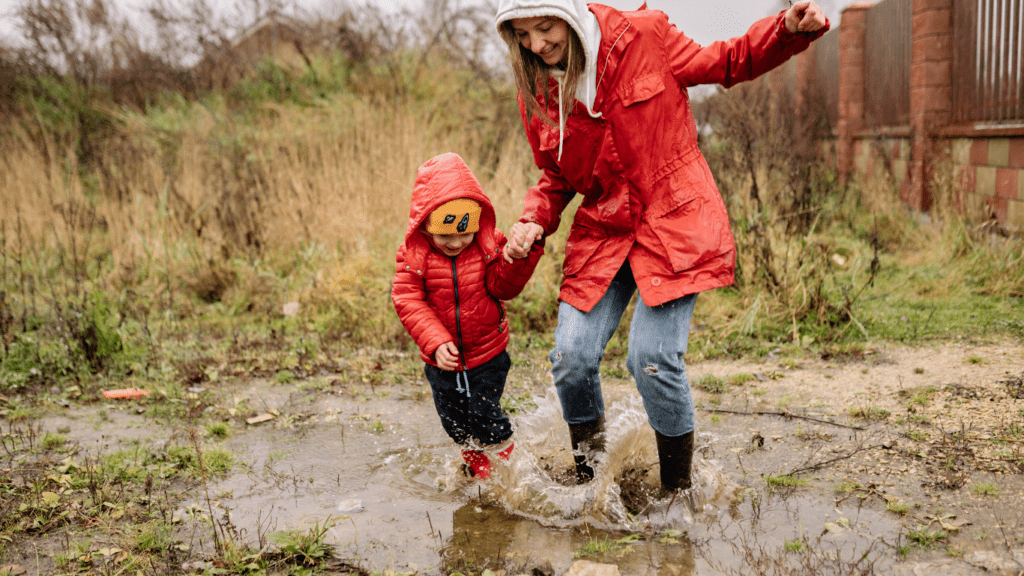Stepping into the world of solo parenting can feel like an overwhelming leap into the unknown. I remember the mix of excitement and fear when I first held my baby, realizing I was solely responsible for their well-being.
In that moment, I discovered a reservoir of strength I never knew existed within me. The first year is a whirlwind of sleepless nights, endless diaper changes, and countless milestones. It’s a journey filled with challenges that test your limits, but it also reveals a resilience that can surprise even the most seasoned parents.
As I navigated this path, I learned valuable lessons about self-reliance, love, and the incredible bond that forms between a parent and child. Join me as I share my insights and experiences from that transformative year of solo parenting.
Understanding Solo Parenting
Solo parenting involves managing the responsibilities of raising a child without a partner. This experience can be both enriching and challenging, revealing unexpected strengths along the journey.
Definition of Solo Parenting
Solo parenting refers to the scenario in which one adult takes on the full responsibility of raising a child. This situation arises from various circumstances, such as divorce, separation, or widowhood.
Solo parents must handle daily tasks like feeding, schooling, and emotional support alone. While the journey can be daunting, it often fosters remarkable resilience and adaptability in navigating parenting challenges.
Myths vs. Realities
- Myth: Solo parenting means facing everything alone.
Reality: Many solo parents build networks of support, including friends, family, and community resources. - Myth: Solo parents can’t provide a stable environment.
Reality: Many solo parents create nurturing, stable homes with strong, loving bonds. - Myth: Solo parenting lacks fun and spontaneity.
Reality: Solo parents often find joy and creativity in family activities, fostering strong connections. - Myth: Solo parents are always stressed.
Reality: While challenges exist, many learn to manage stress effectively through self-care and support systems.
Addressing these myths reveals the truth that solo parenting, though tough, offers a unique and fulfilling experience. Each parent’s journey may differ, yet the opportunity for growth remains constant.
The Emotional Journey
Solo parenting often brings a rollercoaster of emotions. I navigated feelings of isolation and discovered the importance of building a support network.
Dealing with Isolation
Isolation struck frequently during my first year. I confronted moments of loneliness, especially during late-night feedings or early morning routines. Emotions surged when I realized many of my friends and family were unavailable.
Recognizing isolation’s impact became crucial. It sparked a determination to reach out and connect, whether through social media, parenting groups, or community events. Venturing into local activities allowed me to meet others, share experiences, and find comfort in shared struggles.
Building a Support System
Building a strong support system transformed my solo parenting experience. I identified key individuals who offered emotional and practical help. Friends stepped in for playdates, while family members provided encouragement and occasional babysitting.
I also sought out local parent support groups, fostering connections and sharing strategies. Utilizing online communities further expanded my network, offering solidarity and advice. Each connection enriched my journey, turning moments of doubt into opportunities for engagement, learning, and camaraderie.
Practical Tips for Success
Navigating solo parenting during the first year requires practical strategies and self-care. Implementing effective time management and self-care practices can significantly enhance the experience.
Time Management Strategies
- Establish a Routine: I set a daily schedule to provide consistency for both me and my child. Regular feeding, napping, and playtime create stability.
- Prioritize Tasks: I focus on essential duties like meals, chores, and appointments. Using a daily planner helps me track priorities and ensures nothing important is overlooked.
- Use Nap Times Wisely: I maximize my child’s nap times. I tackle chores, engage in personal hobbies, or enjoy moments of rest during these breaks.
- Batch Tasks: I group similar tasks together, completing them in one go. For example, I cook multiple meals at once or bundle errands into a single outing.
- Set Time Limits: I allot specific times for tasks. Limiting my focus helps prevent overwhelming feelings and keeps me productive.
Self-Care Practices
- Prioritize Rest: I recognize the importance of sleep and carve out moments to rest whenever possible. Quality sleep enhances my energy and patience.
- Exercise Regularly: I incorporate physical activity into my routine, whether it’s short walks or at-home workouts. Movement improves my mood and boosts my resilience.
- Connect with Others: I cultivate relationships with friends and family. Regular check-ins and outings provide emotional support and reduce feelings of isolation.
- Engage in Hobbies: I dedicate time to activities that bring me joy, such as reading, crafting, or cooking. Hobbies foster creativity and serve as a mental break.
- Practice Mindfulness: I incorporate mindfulness exercises, like meditation or deep-breathing techniques. These practices help me remain grounded and manage stress effectively.
Discovering Inner Strengths
Solo parenting revealed untapped inner strengths and resilience I hadn’t recognized before. Navigating the challenges of the first year pushed me to grow in ways I never expected.
Personal Growth and Resilience
Personal growth emerged from the daily demands of solo parenting. I learned to adapt quickly, embracing flexibility as my new norm. Each sleepless night tested my limits but also reinforced my determination.
I discovered a remarkable ability to problem-solve, whether it was managing tantrums or handling unexpected situations. Resilience became second nature, as I celebrated small victories throughout my journey.
Learning from Challenges
Challenges provided vital lessons that shaped my parenting approach. Late-night feedings tested my patience, helping me appreciate the quiet moments with my child. Facing isolation pushed me to seek support, resulting in valuable connections that transformed my experience.
Each setback became an opportunity for growth, reinforcing my belief in my capabilities. The first year taught me that challenges could lead to profound personal insights and a deeper bond with my child.


 Maria Chavarria brought a creative heartbeat to Motherhood Tales Pro, helping define its voice and visual identity. Her background in content development and community engagement allowed the platform to resonate deeply with its audience. Maria played a key role in crafting messaging that speaks directly to mothers, amplifying stories and advice that make the brand both relatable and trusted.
Maria Chavarria brought a creative heartbeat to Motherhood Tales Pro, helping define its voice and visual identity. Her background in content development and community engagement allowed the platform to resonate deeply with its audience. Maria played a key role in crafting messaging that speaks directly to mothers, amplifying stories and advice that make the brand both relatable and trusted.